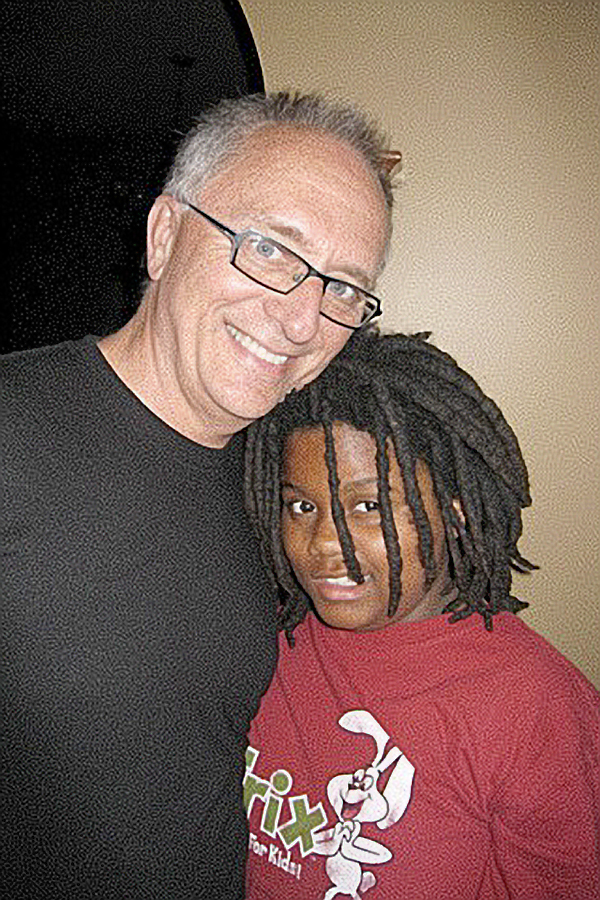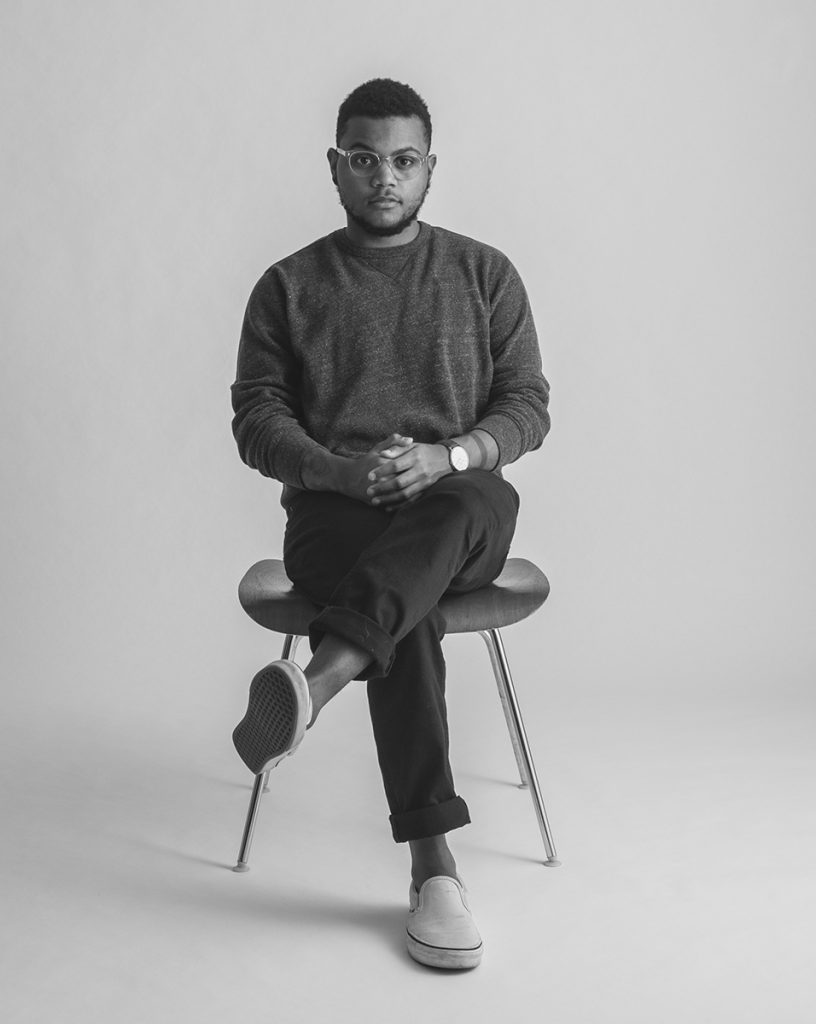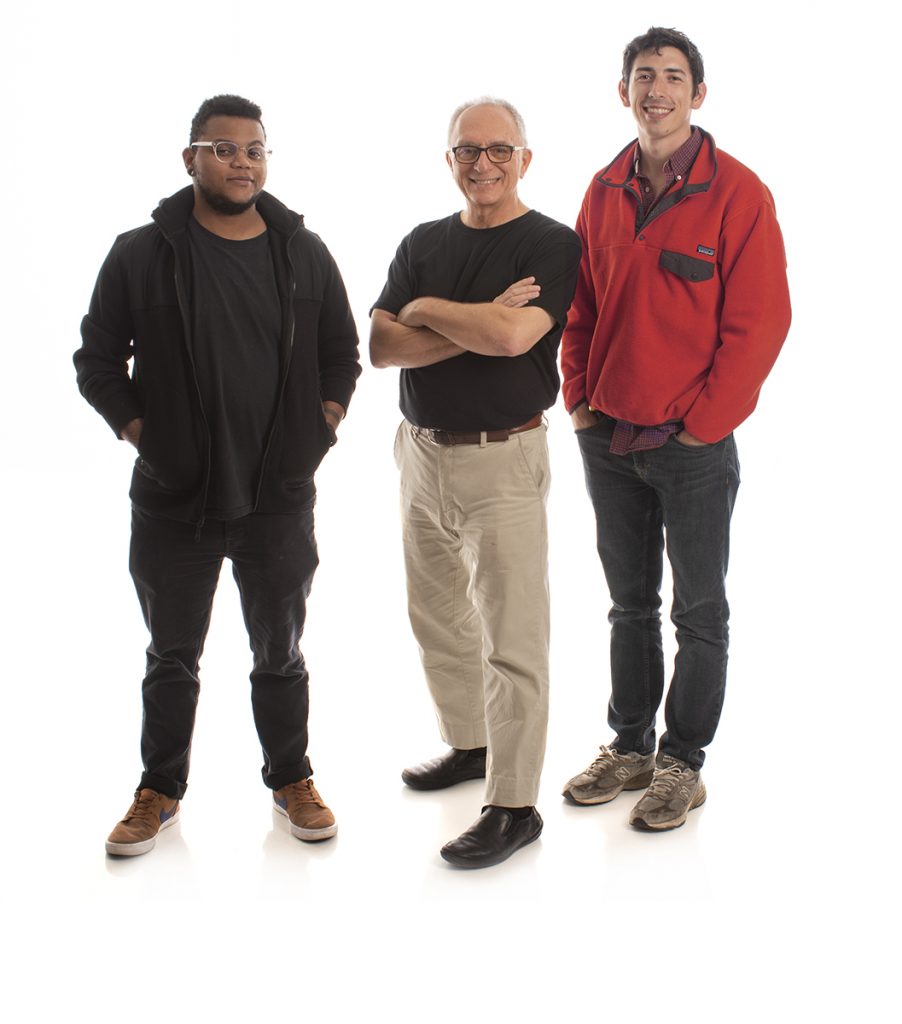
I remember having “the talk” with my dad when I was in elementary school.
I would hang out with a few friends in Corinth Square and then walk back by myself. At this time, I nor my friends had IDs on us. I blended in with them enough to peacefully play and enjoy the innocence of childhood, but the minute we separated and I began the mile walk back to my house, I became an outsider, a threat, someone who really doesn’t belong passing by homes and pedestrians. My dad took a picture of him and me standing next to our house with the address visible and large. This way I could show that I do belong here.
It all started to click.

When we would travel, the TSA agent would automatically assume my brother and dad were related—but stop me and ask for my ID or not acknowledge me when they were checking in my dad and brother. When walking alone, parents walking with their kids would cross the street or make eye contact and seem to hold their kids a little harder. I chose to not read into it, I chose to enjoy the walk, the weather, counting my footsteps, and how many different colored cars there were. People would cut in front of me in lines saying their time was more important. At this point, I was living in fear, slowly detaching from myself and shifting my main focus to always being on high alert. I began to question everything I did, every word that came out of my mouth, every subtle movement.

I made sure to always smile, to keep my hand visible in public, to make friendly eye contact. I was angry, confused, frozen, disquieted. I never knew what version of myself to be, when unmistakably there was only one version. That version was seen as confrontational. Others are allowed to frown when sad, to glower when angry, to simply have a bleak expression without a thought of danger. They could put their hoods up for comfort with no consequences. I kept smiling. They wanted me to smile. I wanted to feel my emotions, to process, to heal. I just smiled.

I’m an adult now. I drive a nice car. I’m well dressed and look after myself. I’m always ready to help, support, take care of someone else before myself. The one thing I will never do is be twice as nice as white people. I am equal, I am human, I deserve the chance to be heard and seen in a new light, a neutral light. I’ve lived, traveled, and navigated this life for 21 years and I refuse to continue to be a product of what they want. I know myself and what I want, need, deserve. I deserve love, respect, patience. I want to succeed, to inspire, to learn more about myself. I need to live, to go on, to breathe. I’m proud to be black. I’m proud and everlastingly grateful to be alive.
Since the protests started in Kansas City, I seem to have become more aware of neighbors’ expressions. I go on daily walks and/or bike rides—sometimes alone, sometimes with my dad. I feel all eyes are on me. These exchanges of fixed minimal smiles are awkward. It leaves me to question whether they are looking at me more because the news of the protests is thundering in our ears, or because this is their day-to-day expression. I can’t yet describe the feeling. I question if it’s merely paranoia wrapping me in waves of discomfort. I question if I only think they’re looking at me because I’m looking at them. Though I can’t ignore that I have had vulnerable, fervent conversations with people I’ve never met these past few days. They’re ready, willing, and actively beginning to listen and to take in without judgment. That is wholeheartedly promising, inspiring, and awakening.
To my white friends, family, acquaintances: the most powerful tool you have right now aside from your privilege, is the act of listening. Listen to these stories. Listen to us. We need to throw our egos out the window and listen to each other. Please do not make our stories about you, our pain, our hurt, our anxiety. We want to be heard; we don’t want to hurt. It’s time to finally make a difference safely, healthily, and with the undying support of black lives.
Black lives matter.
—Remy Styrk is a film composer, born to a homeless heroin addict in Newark, New Jersey in February 1999. At the age of 14 months, he was adopted by a couple—the husband, a fashion photographer and wife, a creative director. He taught a music class at the Kansas City Academy, the high school he graduated from and started his own songwriting workshop through InterUrban ArtHouse. While music provided healthy security throughout his childhood, Styrk wanted to do the same for the kids and be a mentor, create a safe space for them, and learn from them as well.


